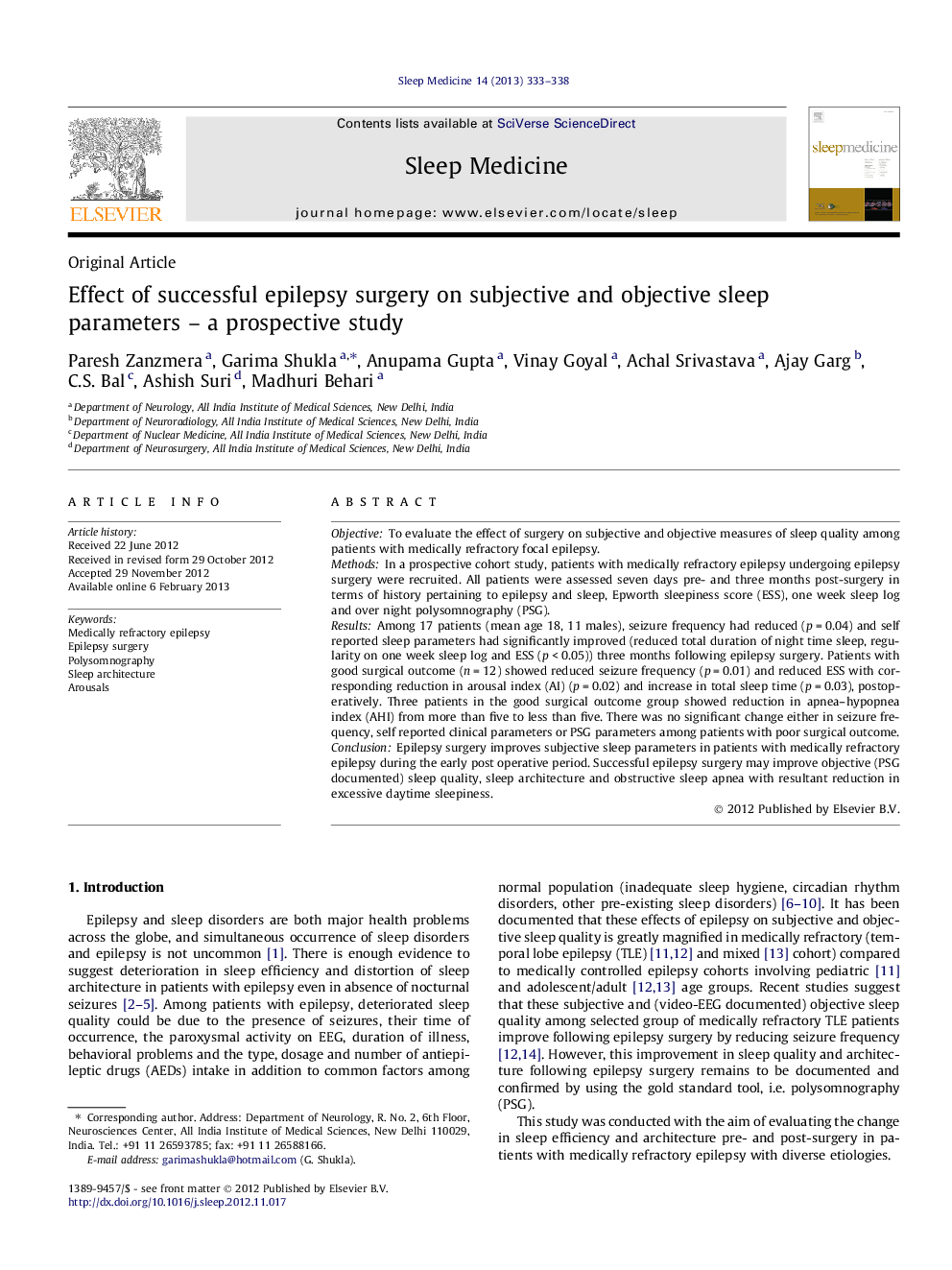| Article ID | Journal | Published Year | Pages | File Type |
|---|---|---|---|---|
| 3176498 | Sleep Medicine | 2013 | 6 Pages |
ObjectiveTo evaluate the effect of surgery on subjective and objective measures of sleep quality among patients with medically refractory focal epilepsy.MethodsIn a prospective cohort study, patients with medically refractory epilepsy undergoing epilepsy surgery were recruited. All patients were assessed seven days pre- and three months post-surgery in terms of history pertaining to epilepsy and sleep, Epworth sleepiness score (ESS), one week sleep log and over night polysomnography (PSG).ResultsAmong 17 patients (mean age 18, 11 males), seizure frequency had reduced (p = 0.04) and self reported sleep parameters had significantly improved (reduced total duration of night time sleep, regularity on one week sleep log and ESS (p < 0.05)) three months following epilepsy surgery. Patients with good surgical outcome (n = 12) showed reduced seizure frequency (p = 0.01) and reduced ESS with corresponding reduction in arousal index (AI) (p = 0.02) and increase in total sleep time (p = 0.03), postoperatively. Three patients in the good surgical outcome group showed reduction in apnea–hypopnea index (AHI) from more than five to less than five. There was no significant change either in seizure frequency, self reported clinical parameters or PSG parameters among patients with poor surgical outcome.ConclusionEpilepsy surgery improves subjective sleep parameters in patients with medically refractory epilepsy during the early post operative period. Successful epilepsy surgery may improve objective (PSG documented) sleep quality, sleep architecture and obstructive sleep apnea with resultant reduction in excessive daytime sleepiness.
